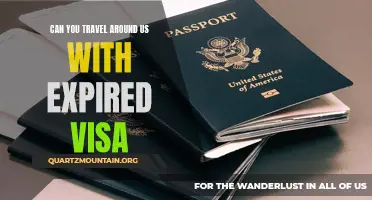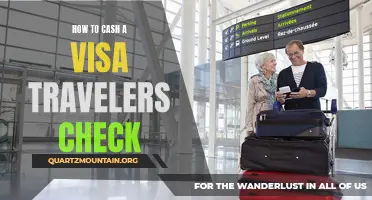
Are you planning a trip to China but overwhelmed by the idea of calculating your travel budget? Don't worry, we've got you covered! In this guide, we will break down all the essential aspects you need to consider when determining your travel expenses for a trip to China. From accommodation and transportation to food and activities, you'll have a clear understanding of how to calculate your travel budget effectively. So, let's dive in and start planning your unforgettable adventure in the Middle Kingdom!
What You'll Learn

Estimated expenses for accommodation and transportation in China
China is a fascinating country with a rich cultural heritage and stunning natural landscapes. If you are planning a trip to this vibrant nation, it is essential to have an idea of the estimated expenses for accommodation and transportation.
Accommodation:
China offers a wide range of accommodations, from budget guesthouses to luxury hotels. The prices vary depending on the city and the type of accommodation you choose. In major cities like Beijing and Shanghai, expect to pay around $50 to $150 per night for a mid-range hotel. In smaller cities or rural areas, you can find comfortable guesthouses for as little as $30 per night.
Transportation:
China has a comprehensive transportation system that includes buses, trains, and flights. The most popular mode of transportation for travelers is the train. The prices for train tickets depend on the distance and seating class you choose. For example, a second-class seat on a high-speed train from Beijing to Shanghai can cost around $100, while a sleeper berth on an overnight train can be as low as $50.
If you are planning to travel by bus, the prices are generally cheaper compared to trains. A long-distance bus ticket can range from $10 to $40, depending on the distance. However, keep in mind that traveling by bus can be time-consuming, as the roads in China can get congested, especially during peak travel seasons.
For domestic flights, the prices can vary significantly depending on the destination and the time of booking. Generally, a one-way domestic flight can cost anywhere from $100 to $300. It is advisable to book your flights in advance to secure the best deals.
Other Expenses:
In addition to accommodation and transportation, it is important to budget for other expenses such as meals, attractions, and miscellaneous costs. China offers a wide variety of delicious and affordable street food options, which can cost as little as $1 to $5 per meal. Dining in restaurants can be slightly more expensive, ranging from $5 to $20 per meal.
When it comes to attractions, entrance fees can vary depending on the popularity and location. For example, iconic sites like the Great Wall of China may cost around $10 to $30 for admission. Other attractions, such as museums and parks, may have lower entrance fees ranging from $2 to $10.
It is also advisable to set aside some money for miscellaneous costs such as transportation within the cities, shopping, and souvenirs. Generally, $20 to $30 per day should be sufficient for these expenses.
In conclusion, the estimated expenses for accommodation and transportation in China can vary depending on your preferences and the cities you plan to visit. It is always a good idea to research and plan your budget accordingly. By doing so, you can have a memorable and budget-friendly trip to this captivating country.
A Comprehensive Guide to Sponsoring a Travel Visa
You may want to see also

Calculating the costs of meals and entertainment during your trip
- Meals: Chinese cuisine is diverse and incredibly delicious, and trying various dishes should be an integral part of your trip. While street food and local restaurants can offer affordable options, upscale or touristy establishments may be more expensive. On average, budget around 30-50 CNY ($4.50 - $7.50) per meal for a decent, local restaurant. If you plan to splurge on high-end gourmet experiences, expect to pay significantly more.
- Drinks: The cost of beverages, including water, soft drinks, and alcoholic beverages, can add up quickly. Be mindful of your spending in this area, as drinks in bars or Western-style establishments can be exorbitantly priced. Buying water bottles from convenience stores or at local markets is a more cost-effective option.
- Entertainment: China offers a wide range of cultural, historical, and entertainment activities that you may want to experience during your trip. This includes visiting popular attractions, attending traditional shows, or participating in specific cultural activities. Research the costs of these activities beforehand to get an idea of how much you will need to set aside.
- Shopping: China is famous for its vibrant markets and shopping districts. If you plan on indulging in some retail therapy or buying local crafts and souvenirs, budget accordingly. Keep in mind that bargaining is a common practice in many markets, so be prepared to negotiate prices.
- Tipping: Tipping is not generally customary in China, especially at local establishments. However, some high-end restaurants or tourist-oriented services may add a service charge to the bill. It's a good idea to check if the service charge is included or not, so you can factor it into your budget.
To calculate how much money you should bring for meals and entertainment, consider your travel itinerary, the number of days you'll spend in each location, and the type of experiences you want. It can be helpful to make a daily or weekly budget and adjust it based on the specifics of each destination. Additionally, consider any extra expenses you may encounter, such as transportation costs or unexpected emergencies, to ensure you have enough money to cover everything.
Remember, these are general guidelines, and the actual cost of meals and entertainment can vary depending on your preferences and circumstances. Doing some research, reading travel blogs or forums, and talking to locals can provide valuable insights into the current prices and help you plan your budget more accurately. It's always better to overestimate your expenses to avoid running out of money during your trip.
Exploring Bogota: The Insider's Guide to Safe Solo Travel
You may want to see also

Budgeting for sightseeing and tourist attractions in China
China offers a plethora of breathtaking sights and tourist attractions, from the Great Wall to the Forbidden City and the Terracotta Army. But before you embark on your journey, it is essential to plan and budget your expenses to ensure a smooth and enjoyable trip. In this guide, we will show you how to effectively budget for sightseeing and tourist attractions in China.
- Research and prioritize attractions: Start by researching the attractions you want to visit in China and create a list of must-see sights. Prioritize the attractions based on your interests and allocate a budget for each. This will help you identify the total amount you will need to set aside for sightseeing.
- Entrance fees and tickets: Most tourist attractions in China charge an entrance fee. Check the official websites or travel guides to get accurate information about the entrance fees for each attraction. Make a note of these fees and include them in your budgeting plan. It is also advisable to purchase tickets in advance to save time and avoid long queues.
- Accommodation and transportation costs: In addition to entrance fees, consider the costs of accommodation and transportation. China has a wide range of options for accommodations, from budget hostels to luxury hotels. Research the average prices for your desired level of comfort and calculate the estimated cost for the duration of your stay. Likewise, analyze transportation options and calculate the costs of getting to and from your selected attractions.
- Food and dining expenses: Don't forget to account for food and dining expenses in your budget. Chinese cuisine is diverse and delicious, with a wide range of options available at various price points. Determine your daily food budget based on your preferences, whether you prefer street food or restaurants. It is also a good idea to try local specialties and street food, which can be both affordable and delicious.
- Additional expenses: It is important to consider other miscellaneous expenses that may arise during your sightseeing adventure. This may include expenses for souvenirs, guided tours, additional attractions, or unexpected costs. Allocate a small portion of your budget for these additional expenses to avoid any surprises.
- Currency exchange and payment methods: When traveling to China, it is crucial to be prepared with the local currency, the Chinese yuan (CNY). Research and compare exchange rates to ensure you get the best deal. It is also advisable to have multiple payment options available, such as cash, credit cards, or mobile payment apps (e.g., Alipay or WeChat Pay).
- Be flexible: While it is important to plan and budget, remember to be flexible. Be open to adjusting your itinerary based on unforeseen circumstances or opportunities that may arise during your trip. This will allow you to adapt your budget accordingly and make the most of your time in China.
By following these budgeting tips, you can have a stress-free and memorable experience exploring the sights and attractions in China. Plan ahead, be prepared, and make the most of your adventure in this beautiful and culturally rich country. Happy travels!
Exploring the Fun Side of Antigua: A Solo Traveler's Paradise
You may want to see also

Tips for managing unexpected expenses and emergencies while traveling in China
Traveling to China can be an exciting and enriching experience, but it's important to be prepared for unexpected expenses and emergencies that may arise during your trip. Here are some tips to help you manage these situations effectively:
- Research and plan ahead: Before your trip, take the time to research the local currency, exchange rates, and common prices for goods and services in China. This will give you a general idea of how much money you should bring and help you avoid being caught off guard by high costs.
- Create a budget: Start by creating a daily budget for your trip, taking into account your accommodation, meals, transportation, and other anticipated expenses. This will give you a ballpark figure for your daily spending and allow you to track your expenses more effectively.
- Carry emergency cash: It's always a good idea to carry some emergency cash in case you run into unexpected situations where card payments may not be accepted. Keep this cash in a secure place, such as a hidden money belt or a separate compartment in your bag.
- Use a travel money card: Consider getting a travel money card, which allows you to load multiple currencies onto a single card. This can help you manage your expenses while minimizing the risk of carrying large amounts of cash. Just make sure to check if this card is widely accepted in China before you go.
- Get travel insurance: Unexpected emergencies can be costly, so it's crucial to invest in comprehensive travel insurance that covers medical expenses, lost or stolen belongings, trip cancellations, and other unforeseen events. Read the policy carefully to understand the coverage and know how to access assistance if needed.
- Save emergency contact numbers: Prior to your trip, make sure to save important contact numbers in case of emergencies, such as your travel insurance provider, embassy or consulate, local police, and your hotel or accommodation. Having these numbers readily available can save you time and stress during challenging situations.
- Adhere to safety precautions: It's important to exercise caution and follow safety guidelines while traveling in China. Avoid flashing valuable items, be aware of your surroundings, and stay in well-lit and populated areas, especially at night. By taking these precautions, you can minimize the risk of theft or other emergencies.
- Stay connected: Having a reliable means of communication is essential when traveling, especially in case of emergencies. Consider getting a local SIM card or an international roaming plan for your phone. This will enable you to make calls, access the internet, and stay connected with your loved ones or emergency contacts.
- Seek local advice: If you find yourself in a situation where you need assistance or advice, don't hesitate to reach out to local authorities, your hotel staff, or fellow travelers. They can provide valuable insights and guidance to help you navigate through unforeseen circumstances.
- Stay calm and flexible: Finally, it's important to stay calm and flexible when dealing with unexpected expenses or emergencies. Take a deep breath, assess the situation, and think about the best course of action. Being prepared and staying level-headed will help you manage these situations more effectively.
By following these tips, you can be better prepared to handle unexpected expenses and emergencies while traveling in China. Remember to plan ahead, stay informed, and prioritize your safety and well-being throughout your trip.
Exploring Opportunities Abroad: Balancing Travel Visas and Job Searches
You may want to see also
Frequently asked questions
The amount of money you should bring for traveling in China depends on several factors such as the duration of your trip, your intended activities, and your personal spending habits. As a general guideline, budget travelers can expect to spend around $30-50 per day on accommodation, meals, transportation, and sightseeing expenses.
It is advisable to bring a combination of cash and credit cards when traveling in China. While many major cities and tourist areas accept credit cards, it is still common for smaller shops, markets, and local vendors to only accept cash. It's also important to note that foreign credit cards may not work in all ATMs, so having some cash on hand is always helpful.
Yes, China has certain currency exchange restrictions. Foreign currency can be exchanged for Chinese currency (Renminbi) at banks, hotels, and some large department stores. However, it is important to note that the exchange of Chinese currency back into foreign currency is heavily restricted, so it is advisable to only exchange the amount of money you anticipate spending during your trip.
Yes, there are several ways to save money while traveling in China. Some tips include staying in budget accommodations such as hostels or guesthouses, opting for local street food or smaller eateries instead of expensive restaurants, using public transportation instead of taxis, and taking advantage of free or discounted activities and attractions. Additionally, it is always a good idea to research and compare prices before making any purchases or booking accommodations.







